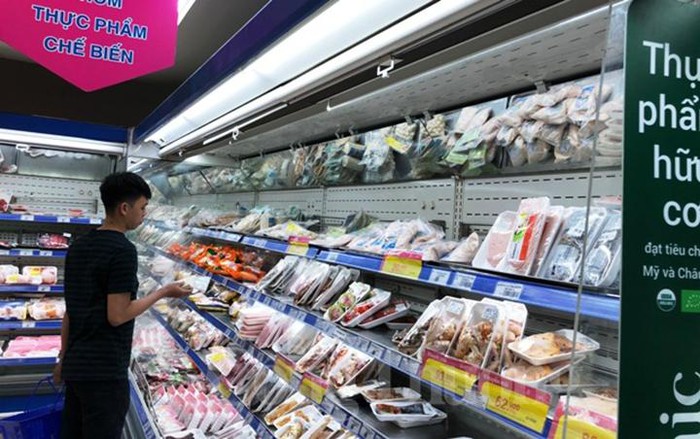Food industry attractive to foreign investors
VGP – With its huge potential, Viet Nam’s food industry has attracted great interest and eager investment from both domestic and foreign companies.
 |
|
Viet Nam’s food industry attractive to foreign investors |
In recent years, food processing industry has tended to grow strongly and gradually with many highly competitive products.
The food industry continues to affirm itself as a major contributor to the economy with a growth rate of 10.6% in the first eight months of 2019.
Ramesh Anand, President of the Indian Business Chamber in Viet Nam (INCHAM), said that with the people’s increasing income, the large market with more than 96 million people is a factor driving the growth of the Vietnamese food industry. Viet Nam has now been one of the world’s largest exporters of rice, coffee, pepper and cashew nuts. These facts show the great commercial potential for enterprises in the food industry.
Particularly, the recent signing of free trade agreements, such as the Comprehensive and Progressive Agreement for Trans-Pacific Partnership (CPTPP) and the European Union-Viet Nam Free Trade Agreement (EVFTA), have facilitated market access for processed food and beverage products of foreign countries into Viet Nam and vice versa. This is also the motivation for foreign firms to seek business cooperation opportunities in Viet Nam’s food industry.
Viet Nam has a large and diverse supply of agro-fishery and food industry products for the domestic market and exports. Experts say that in order to facilitate the development of the food industry, businesses and farmers should strengthen their linkages and research investment in the products of the market’s needs, combined with investing in the production and packaging technologies, advertising products, and “shaking hands” with foreign firms and importers to manufacture the products that suit the tastes of each market.
Alongside the efforts of enterprises, it is necessary for the State to support and promulgate development policies according to key objectives, especially towards the linkage in the value chain.
The food market in Viet Nam has long been considered a “gold mine” with huge development room for both domestic and foreign investors to pour capital in and compete against each other. In the near future, with the implementation of a series of new-generation FTAs, as well as the dynamic development of the world economy, the Vietnamese food industry seizes many opportunities to thrive. Attracting investment to develop production and acquiring advanced technologies will be the key to promoting domestic companies to develop Viet Nam’s food processing industry.
By Vien Nhu
